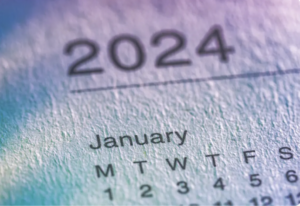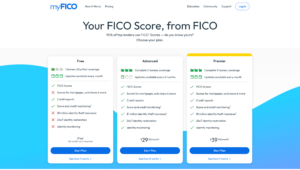Nearly 170 million Americans hold more than one credit card. According to a 2019 Consumer Financial Protection Bureau Report, credit cards are one of the most commonly-held and widely-used financial products in America.
It’s safe to assume that credit cards primarily account for people’s credit scores.
In fact, according to a Consumer Financial Protection Bureau Report, 58% of the information on credit reports comes from credit card issuers. Another 13% comes from collection agencies, 7% from student loans, 7% from mortgage lenders, and the rest of the information comes from auto loans.
Often credit reports contain a variety of accounts and it can be confusing as to what exactly may be hindering or even helping your credit scores.
Since credit cards take the lead on most consumers’ credit reports, consumers can target how to manage credit card accounts in order to improve credit scores.
Manage credit cards wisely to improve credit scores
Consumers should target how they manage credit card accounts if improving credit scores is a goal. With 58% of information on credit reports coming from credit card issuers, it is important that all credit card accounts are managed wisely. Here is how:
- On time payments must be made to all credit card accounts.
- Just one 30-day late credit card payment can take as much as 100 points off a good credit score. If your credit is already less than perfect the impact will not be as devastating; but nevertheless, any points taken off a credit score due to late payments may have a negative and lasting impact. Imagine the impact of multiple 30-day late payments on multiple credit accounts would have on your credit score. Becoming 90-days delinquent on just one account can severely hurt your credit scores.
- Payment history is 35% of credit scores. That’s the largest of the 5 factors in credit scoring.
- Get in the habit of keeping your credit card balances low. How much is owed on credit cards is 30% of credit scores.
- Using less of your available credit limit can increase credit scores.
How many credit cards should you have
There’s really no one-size-fits-all when it comes to how many credit cards you should have but according to a 2019 Experian Consumer Credit Review, the average American has 4 credit cards. Here are some factors to consider when deciding how many credit cards you should have:
Household income.
Income requirements for credit card approval varies by credit card issuer and from individual card to card. But it’s safe to assume that a higher income will generally help your approval odds and allow for higher credit limits. But still, there’s no guarantee your income will get you a high credit limit or approved at all.
Spending habits.
Credit cards may cause people to spend more according to a classic study by by Drazen Prelec and Duncan Simester, professors at Massachusetts Institute of Technology. The study found that found shoppers spend up to 100% more when using their credit card to pay instead of cash.
But spending money with credit cards is actually smart when you can earn rewards, get cashback on purchases, earn points towards hotel stays and airline miles. Some credit cards even offer cashback on everyday items like gas and groceries. Plus, credit cards are a more secure form of payment than cash.
If you can responsibly manage your spending habits, credit cards offer numerous ways to add to your bottom line. Unfortunately, far too many people aren’t able to resist the temptation to spend on a credit card.
Financial management habits.
Large amounts of debt will reflect poorly on your credit scores. Most credit cards only require a minimum payment but paying more than the minimum not only helps your credit scores but also saves you money in the long-term. If you can pay in full each month then you are practicing good credit card management habits and may be able to handle more than one credit card.
A lower credit utilization rate means your credit cards aren’t maxed out and that you’re managing your credit well. Ideal credit utilization is below 30%. Lower credit balances will decrease your debt and could increase your credit score! People with higher credit scores tend to carry 7% or less in credit card debt.
Credit card rewards.
The following are four common types of credit card reward programs that may be of interest. By understanding what they are, you can make better decisions when opening credit card accounts.
- Cashback cards. Earning cash back on purchases allows you to save the money or spend the money any way you like.
- Points Rewards. Points rewards can come in several forms and are based on how much you spend. For example, you might earn points at restaurants, grocery stores, gas stations, hotel stays, or for every dollar you make in purchases. Points can be redeemable for gift cards or cash up to a certain amount.
- Travel rewards. Travel rewards cards earn you miles that you can redeem for airline tickets. The number of miles you can earn varies by credit card, and the number of miles you need to purchase a flight.
Annual fees.
A credit card annual fee is a price that you’re required to pay every year to remain a cardholder. Annual fees can range from $0 up to $450 or more, depending on the rewards, points, or travel benefits offered by the card.
Never close old credit card accounts
Closing an older, paid-off credit card will likely hurt their scores. In the short term, closing a credit card account increases your credit utilization, which is the amount you owe compared with your total available credit; in the long term, it lowers the average age of your accounts. Both of these can take points off a credit score.
Final thoughts
The best way to curtail spending on a credit card is to think of it as a loan. When you spend money on a credit card you are essentially borrowing money. You don’t want to borrow money on all your credit cards. Just keep in mind, the more balances, minimum payments, and due dates you have to manage, the harder it may become to stay current with credit card payments and payments to other accounts. A few credit accounts are much easier to manage.
Plus, when too much of your income is going to debt payments each month financial problems may be ahead.
Your income, spending habits, financial management habits as well as the desire for credit card rewards should determine how many credit cards you hold.
Armed with the knowledge of what most impacts credit scores, you can now target credit card account management in order to improve credit scores. Get in the habit of keeping your credit card balances low and payments on time.






















